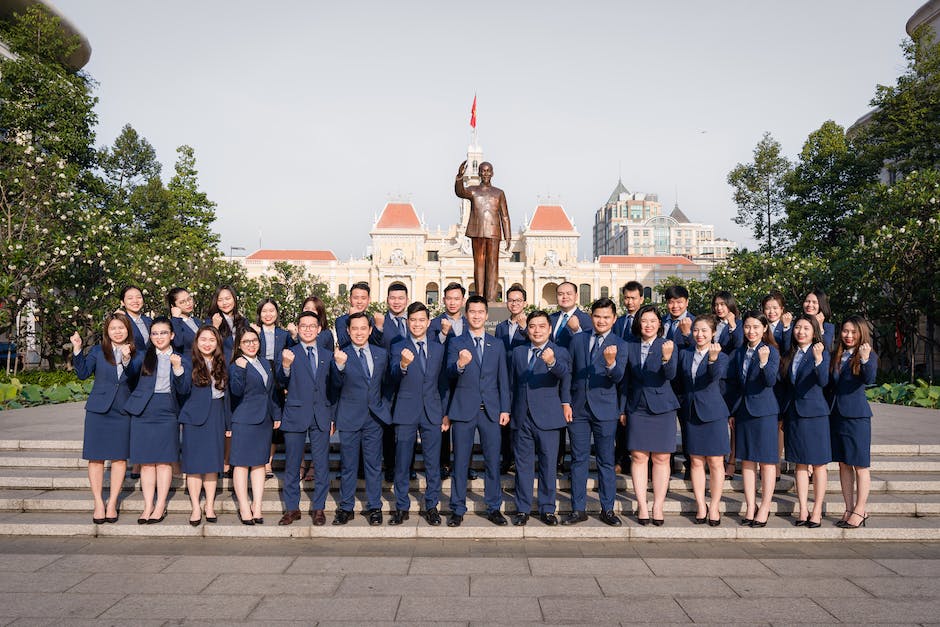Table of Contents
The Pioneer of Microfinance: The Inspiring Story of Muhammad Yunus
Introduction
Muhammad Yunus, widely known as the pioneer of microfinance, is an inspiring figure whose work has transformed the lives of millions around the world. Through his innovative approach, Yunus has empowered the poor by providing them with access to financial services, enabling them to start their own businesses and break free from the cycle of poverty. His efforts have not only earned him numerous accolades and recognition, including the Nobel Peace Prize, but have also sparked a global movement towards inclusive and sustainable economic development. This is the inspiring story of Muhammad Yunus, a visionary leader who has dedicated his life to creating a world where everyone has the opportunity to thrive.
The Early Life and Education of Muhammad Yunus
The early life and education of Muhammad Yunus played a crucial role in shaping him into the pioneer of microfinance that he is today. Born on June 28, 1940, in the village of Bathua, Bangladesh, Yunus grew up in a modest family. His father, Hazi Dula Mia Shoudagar, was a jeweler, and his mother, Sufia Khatun, was a housewife. Despite their limited means, Yunus’s parents instilled in him the value of education and hard work.
Yunus attended the Lamabazar Primary School, where he excelled academically. His teachers recognized his intelligence and dedication, and they encouraged him to pursue higher education. In 1955, Yunus enrolled in Chittagong Collegiate School, one of the most prestigious schools in the region. Here, he continued to excel in his studies and developed a keen interest in economics.
After completing his secondary education, Yunus enrolled at Dhaka University in 1957. He pursued a Bachelor of Arts degree in economics and graduated with honors in 1960. During his time at university, Yunus became involved in various social and political activities. He joined the East Pakistan Students’ League and actively participated in protests against the oppressive regime.
Yunus’s passion for social justice and economic equality continued to grow during his time at Dhaka University. He realized that poverty was a pervasive issue in Bangladesh, and he became determined to find a solution. After completing his undergraduate studies, Yunus received a Fulbright scholarship to pursue a master’s degree in economics at Vanderbilt University in the United States.
In 1965, Yunus left Bangladesh and embarked on a new chapter in his life. At Vanderbilt University, he immersed himself in his studies and conducted extensive research on poverty and development economics. It was during this time that Yunus began to question the traditional banking system and its exclusion of the poor.
After completing his master’s degree in 1969, Yunus returned to Bangladesh and joined the economics department at Chittagong University as a lecturer. He continued his research on poverty and started to explore alternative ways to provide financial services to the poor. Yunus believed that access to credit could empower individuals and help them break free from the cycle of poverty.
In 1974, Yunus’s vision began to take shape when he started experimenting with small loans to impoverished women in the village of Jobra, near Chittagong. He discovered that even the smallest amount of credit could make a significant difference in the lives of these women. They used the loans to start small businesses and generate income for their families.
This groundbreaking initiative marked the birth of microfinance, a concept that would revolutionize the way financial services are provided to the poor. Yunus founded the Grameen Bank in 1983, which became the first microfinance institution in Bangladesh. The bank’s mission was to provide small loans, known as microcredit, to the poor, particularly women, who were traditionally excluded from the formal banking sector.
Yunus’s innovative approach to poverty alleviation gained international recognition and acclaim. He received numerous awards and honors, including the Nobel Peace Prize in 2006. Today, microfinance has become a global movement, empowering millions of individuals around the world to escape poverty and build a better future for themselves and their families.
The early life and education of Muhammad Yunus laid the foundation for his remarkable journey as the pioneer of microfinance. His upbringing instilled in him a strong sense of social responsibility, and his academic pursuits equipped him with the knowledge and skills to challenge the status quo. Yunus’s story is a testament to the power of education, determination, and compassion in creating positive change in the world.
The Birth of Microfinance: Grameen Bank and its Impact
The Birth of Microfinance: Grameen Bank and its Impact
Microfinance, the provision of financial services to low-income individuals and communities, has become a powerful tool in the fight against poverty. One man, Muhammad Yunus, is widely recognized as the pioneer of microfinance and the founder of Grameen Bank, an institution that has transformed the lives of millions.
Born in 1940 in Chittagong, Bangladesh, Yunus grew up witnessing the struggles of poverty and inequality. He pursued his education, earning a Ph.D. in economics from Vanderbilt University in the United States. It was during his time as a professor at Chittagong University that Yunus had a life-changing encounter.
In 1974, Bangladesh experienced a severe famine that left millions of people destitute. Yunus, deeply affected by the suffering he witnessed, decided to take action. He began by lending small amounts of money to impoverished women in the village of Jobra, near Chittagong. These loans were given without collateral, a revolutionary concept at the time.
Yunus soon realized that these small loans had a significant impact on the lives of the borrowers. The women used the money to start small businesses, such as selling handmade crafts or buying livestock. With their newfound income, they were able to provide for their families, send their children to school, and break the cycle of poverty.
Inspired by the success of his experiment, Yunus founded Grameen Bank in 1983. The bank’s mission was to provide financial services to the poor, particularly women, who were often excluded from traditional banking systems. Grameen Bank operated on the principle of trust, relying on social collateral instead of physical assets.
The impact of Grameen Bank was profound. It empowered women, who made up the majority of borrowers, by giving them access to credit and the means to improve their lives. The bank’s repayment rates were impressive, challenging the notion that the poor were not creditworthy. Yunus’s innovative approach to lending became known as microcredit, and it quickly gained recognition worldwide.
Microfinance institutions began to emerge in other countries, inspired by Grameen Bank’s success. The concept of providing small loans to the poor spread like wildfire, with organizations such as Accion, BRAC, and Kiva leading the way. Governments and international organizations also recognized the potential of microfinance as a poverty alleviation tool.
The impact of microfinance goes beyond economic empowerment. It has been shown to improve education, healthcare, and gender equality. By giving women control over their finances, microfinance has helped to challenge traditional gender roles and promote women’s rights. It has also fostered entrepreneurship and innovation, as borrowers use their loans to start or expand their businesses.
However, microfinance is not without its critics. Some argue that high interest rates charged by microfinance institutions can trap borrowers in a cycle of debt. Others question the sustainability of microfinance programs, arguing that they rely too heavily on donor funding. These concerns highlight the need for responsible and ethical practices within the microfinance industry.
Despite the challenges, the birth of microfinance through Grameen Bank has undoubtedly had a lasting impact. Muhammad Yunus’s vision and determination have transformed the lives of millions, proving that small loans can make a big difference. As microfinance continues to evolve, it is crucial to ensure that it remains true to its original mission of empowering the poor and promoting social justice.
Muhammad Yunus: A Nobel Peace Prize Laureate
Muhammad Yunus, a Bangladeshi economist and social entrepreneur, is widely recognized as the pioneer of microfinance. His inspiring story and groundbreaking work have earned him numerous accolades, including the Nobel Peace Prize in 2006. Yunus’s innovative approach to poverty alleviation has transformed the lives of millions of people around the world.
Born on June 28, 1940, in Chittagong, Bangladesh, Yunus grew up in a middle-class family. He pursued his education in economics and eventually obtained a Ph.D. from Vanderbilt University in the United States. After completing his studies, Yunus returned to Bangladesh and began teaching economics at Chittagong University.
It was during his time as a professor that Yunus witnessed the extreme poverty that plagued his country. He saw how traditional banking systems failed to provide financial services to the poor, leaving them trapped in a cycle of poverty. This realization sparked his determination to find a solution.
In 1976, Yunus founded Grameen Bank, a microfinance institution that aimed to provide small loans, or microcredit, to the poor. The concept was simple yet revolutionary – by extending small loans to individuals who lacked collateral, Yunus believed he could empower them to start their own businesses and lift themselves out of poverty.
Initially, Yunus faced skepticism and resistance from traditional banks and financial institutions. They doubted the viability of lending to the poor, considering them high-risk borrowers. However, Yunus remained undeterred and persisted in his mission. He used his own money to fund the first loans and gradually gained the trust of the local community.
As Grameen Bank grew, Yunus introduced innovative practices that set it apart from traditional banks. He emphasized the importance of group lending, where borrowers formed small groups and were collectively responsible for repaying the loans. This approach not only fostered a sense of community but also ensured a high repayment rate.
Yunus’s efforts soon gained international recognition, and the success of Grameen Bank became a model for microfinance institutions worldwide. The impact of microcredit on poverty reduction was undeniable, as it provided individuals with the means to invest in their businesses, improve their living conditions, and secure a better future for their families.
In 2006, Muhammad Yunus and Grameen Bank were jointly awarded the Nobel Peace Prize for their efforts to create economic and social development from below. The Nobel Committee praised Yunus for his visionary leadership and his unwavering commitment to eradicating poverty.
Yunus’s work has inspired countless individuals and organizations to embrace the principles of microfinance. Today, microcredit has become a powerful tool in the fight against poverty, empowering millions of people to break free from the cycle of poverty and build sustainable livelihoods.
Despite his achievements, Yunus remains humble and continues to advocate for social change. He believes that poverty is not a natural state but rather a consequence of human actions and systems. Yunus envisions a world where everyone has access to financial services and the opportunity to create a better life for themselves and their communities.
In conclusion, Muhammad Yunus’s inspiring story and pioneering work in microfinance have made a lasting impact on the world. His dedication to empowering the poor and his innovative approach to poverty alleviation have transformed the lives of millions. As a Nobel Peace Prize laureate, Yunus serves as a beacon of hope, reminding us that even the smallest actions can create significant change.
The Global Influence of Microfinance: Lessons from Muhammad Yunus
The Global Influence of Microfinance: Lessons from Muhammad Yunus
Microfinance, the provision of financial services to low-income individuals and communities, has become a powerful tool for poverty alleviation and economic development around the world. One man who played a pivotal role in popularizing this concept and revolutionizing the way we think about banking for the poor is Muhammad Yunus.
Born in 1940 in Chittagong, Bangladesh, Yunus grew up witnessing the struggles of poverty and inequality. He pursued his education in economics and eventually obtained a Ph.D. from Vanderbilt University in the United States. It was during his time as a professor at Chittagong University that Yunus had a life-changing encounter.
In 1974, Bangladesh experienced a severe famine that left millions of people destitute. Yunus, deeply affected by the suffering he witnessed, decided to take action. He began by lending small amounts of money to impoverished women in the nearby village of Jobra. These loans, which were often as little as $27, allowed the women to start small businesses and generate income for their families.
Yunus soon realized that traditional banks were not interested in serving the poor. They considered them too high-risk and unprofitable. This realization led him to establish the Grameen Bank in 1983, with the mission of providing financial services to the poor, particularly women, who were often excluded from the formal banking sector.
The Grameen Bank pioneered the concept of microcredit, offering small loans without collateral to individuals who lacked access to traditional banking services. Yunus believed that poverty was not due to a lack of effort or ability, but rather a lack of opportunities. By providing financial resources to the poor, he aimed to empower them to break free from the cycle of poverty.
The success of the Grameen Bank and its microcredit model quickly gained international recognition. Yunus and the bank were awarded the Nobel Peace Prize in 2006 for their efforts in creating economic and social development through microfinance. This prestigious accolade brought global attention to the power of microfinance as a tool for poverty reduction.
Yunus’s work has inspired countless individuals and organizations around the world to adopt the microfinance model. Today, microfinance institutions operate in over 100 countries, providing financial services to millions of people who were previously excluded from the formal banking sector.
The impact of microfinance goes beyond just providing access to credit. It has been shown to improve financial literacy, increase savings, and promote entrepreneurship. By giving individuals the means to start their own businesses, microfinance has the potential to create jobs and stimulate economic growth in communities that have long been marginalized.
However, microfinance is not without its challenges. Critics argue that high interest rates and aggressive lending practices can trap borrowers in a cycle of debt. Others question the sustainability of microfinance institutions and their ability to scale up their operations while maintaining their social mission.
Despite these challenges, the lessons learned from Muhammad Yunus and the Grameen Bank continue to shape the field of microfinance. The importance of understanding the needs and aspirations of the poor, the value of social collateral, and the power of financial inclusion are all key takeaways from Yunus’s pioneering work.
In conclusion, Muhammad Yunus’s inspiring story and his groundbreaking work with microfinance have had a profound global influence. His belief in the potential of the poor to lift themselves out of poverty through access to financial services has transformed the way we think about banking and development. As we continue to strive for a more inclusive and equitable world, the lessons from Yunus’s journey serve as a guiding light for those seeking to make a difference through microfinance.
Q&A
1. Who is Muhammad Yunus?
Muhammad Yunus is a Bangladeshi economist and social entrepreneur who pioneered the concept of microfinance.
2. What is microfinance?
Microfinance refers to the provision of financial services, such as small loans and savings accounts, to low-income individuals who lack access to traditional banking services.
3. What is Muhammad Yunus known for?
Muhammad Yunus is known for founding Grameen Bank, a microfinance institution that provides small loans to impoverished individuals, particularly women, to help them start their own businesses and escape poverty.
4. What impact has Muhammad Yunus had on the world?
Muhammad Yunus has had a significant impact on the world by empowering millions of people living in poverty through microfinance. His work has helped alleviate poverty, promote entrepreneurship, and improve the lives of countless individuals and communities.
Conclusion
Muhammad Yunus is widely recognized as the pioneer of microfinance, a concept that has transformed the lives of millions of people around the world. Through his groundbreaking work, Yunus has demonstrated the power of providing small loans to the poor, enabling them to start their own businesses and escape the cycle of poverty. His inspiring story serves as a testament to the potential of social entrepreneurship and the impact that one individual can have on society. Yunus’ efforts have not only improved the economic conditions of countless individuals, but also challenged traditional banking systems and sparked a global movement towards financial inclusion. His dedication to empowering the marginalized and his innovative approach to poverty alleviation make him a true visionary and a role model for aspiring changemakers.




